|
Sounds like something a wise man once said doesn't it? A wise man may well have said it but so did I and I continue to say it to any career coaching client who I work with; experienced professional, graduate or school-leaver and I want to explain why these few words are so key to you getting what you want from your career.
Let's be clear I am not advocating saying anything in your CV or interview performance that is untrue, far from it, what I am encouraging is that we all learn to amplify our message to employers by being comfortable in saying positive, upbeat and impressive things about ourselves. There is a particularly English / British tradition that modesty is a laudable quality, that to be loud and obvious is somehow crass and a little distasteful. I agree that clumsy and obvious self-promotion can be counter-productive and at worst annoying but that is not what I am advocating here; I am saying to everyone that is frustrated by being overlooked, a close second to the successful candidate or by the lack of progression in their career that you need to forget false or real modesty and begin to think about everything you say and write being part of an accumulated PR strategy that will help you to tell the world how brilliant you are! It is not about dwelling on any of the descriptions that have been used to keep people in their place...it's not 'showing off', it's not 'being big headed' and is certainly not 'boastful' it is simply being your own biggest fan and being able to lucidly and convincingly tell the world about the great things you have done, can do and want to do. People generally speaking love to meet authentic, confident, lucid and interesting people. Whether that is in the pub, on holiday, in work or in an interview. People remember people who are able to demonstrate their self-confidence and their skills with strong examples and body language, voice, eyes, smile and posture that all back up the content. It is liberating not to be always worried about what people think of how you are saying something when you come to terms with the fact that it is what you are saying that they will focus on. If you fail to flag up something that is important and relevant because you don't want to show off then who wins? If the CV next to yours on the desk or the person after you in the interview is able to show what they can do and do it in a proud and confident and persuasive way then who wins? Modesty is the enemy of opportunity - all candidates need for the sake of their own futures to be able to suspend their modesty and get the message across in no uncertain terms...... Paul Goring
1 Comment
11/20/2013 0 Comments Lucid stories for interviews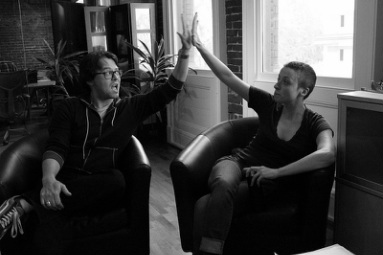 So what are 'lucid stories' in the context of being awesome at being interesting, confident and answering the questions you need to nail during an interview? The brilliant Angela Tompkins from the University of Gloucestershire first introduced the concept of lucid stories in a wider context to me and I have run with it and adapted it a little in my career coaching and employability in education work; lucid stories put quite simply are a pre-prepared collection of examples, anecdotes or recollections of times when you have been brilliant at something that the interviewer will want to know that you can be brilliant at. How does that work then? Well for me the easiest way to prepare for an interview in terms of providing yourself with a loose 'script' of things to say is to look closely at the Job Description / Job Specification that describes the role that you have been chosen to be interviewed for. Within the document, regardless of how the business structures it or describes the elements within it, there will be a list of things that they want you to be able to do to be considered for the job. Of course in your application, CV, covering letter, telephone interview you have already suggested that you can do them. Equally obviously you know that they will want more proof than your say so to give the job. So lucid stories is just the result of you creating two axis; one you call Great examples of me being brilliant at work and the other called What they need me to be able to do; I expect that you will probably find a more succinct way of labelling them . Next you add to the axis What they need me to be able to do some sub headings that are those things; project management, budget management, running meetings, customer service, managing a team, achieving goals under pressure etc. Now on the Great examples of me being brilliant at work axis you add sub-headings to describe the projects, events, job titles or situations that are your list of times you have been brilliant. All you now need to do is to sit down and for each Great example.... you need to think about which of the things they need you to do in the new job you did then, it can be more than one, and tick the boxes. So for example you ran a project to help integrate a new payments system into your company in 2012 and during that project you demonstrated project management, running meetings, budget management and delivering under pressure. So you put tick against those things on the What they need me to do axis and then you know that if the interviewer asks you a question something like 'Tell me about a time when you delivered a result under pressure' that you have your answer already sorted AND (and this is the good bit) you can also tell them about your project management, running meetings and budget management skills as well. So you have answered a key question with a great example and added a few other key competencies into your answer! Impressive. Anything that 'helps' the interviewer to find evidence of the things that they need to find to make you appoint-able is in your favour; very much so. Being lucid is about offering a flowing, considered, detailed and relevant example when asked under pressure for it. Many interviews fail simply because the interviewee tries to think on their feet, produces poor examples (or none at all) and simply does not do themselves justice because they do have the right answers, great examples and impressive experience but fail to translate that into their interview performance. I guess I am talking about preparing a script to allow you to perform under pressure without having to worry about what you are going to say. Most interviewers now follow a competency based interview structure and gone are the days (mostly) when you might be thrown a question like 'If you were an animal which animal would you be?' instead competency based questions that start 'Can you tell me about a time when' or 'Do you have an example of you...' are more likely and indeed more easily prepared for using this method. Lucid stories mean lucid answers to important questions and if you are comfortable with what is coming out of your mouth then in turn your physicality will reflect that with positive body language and more confident use of your eyes and smile and more animation through your hands and more expression in your voice - these all lead to greater connection with the interviewer and that coupled with great answers significantly improves your chances of success. So go start practising your lucid stories! We often forget the important details when we are getting ready for an interview; thinking too much about those dreaded 'killer questions' and imagining the pressure won't really do you any good to be honest. This simple little memory prompt will be invaluable just to make sure that you give yourself every opportunity of nailing it and being in the best state of mind you can be to be successful!
Dress The Part Simple but crucial - are they a 'suited and booted' type company or do they encourage smart casual or even dress down as part of their culture? Even then do you want to risk adopting the dress code that their employees are encouraged to use or do you want to start with a statement of standards? Our advice - go suited and as smart as you like unless they specifically tell you different. Let them see the best of you and that includes ironing things well and shining shoes and knotting your tie somewhere near your neck. You don't know the standards of the person who will be interviewing you so don't risk a decline on something as superficial as dress. Plan Your Route Again in a world of Google Maps, AA Route Planner and Sat Nav you'd think this was a no brainer; but you'd be surprised. Don't assume anything, look for the best route and best form of transport to get you there reliably on time. Time keeping is still a corner-stone of performance analysis in many businesses and so is personal organisation. Make the effort to know and be sure that you will be there when you need to be. It might not be the coolest thing in the world to swot up on routes and bus / train timetables and research traffic issues around the venue but since when has cool been relevant to getting a job! Prepare Some Questions When they ask, and they will, at the end of the interview 'do you have any questions for us' you must have something to say. Why? Well it's not always about what you ask, it's about the fact that you are interested enough in them and their job to have thought about it, that you can make a critical last impression by showing your research skills, asking intelligent questions and really engaging with them. It is flattering to a recruiter for you to be interested enough in the company that they work for to ask them about it. Simple. Breathing / Control Your Nerves The biggest cause of interview failure in my experience? Not skills, not ability to answer questions or indeed any one of a dozen other reasons....if fact it is your ability to execute your interview skills in a calm and professional way. It is your ability to remain focused, project an authentic you and gain their confidence. Nerves create nerves, so if you are calm then the interviewer will relax, listen more and be more receptive to you and what you offer. So, a few deep breaths perhaps in the rest room or on the walk to the interview room are highly recommended. Get your heart rate down and get some oxygen in your lungs. Develop some personal mind tricks that will suit you for calming down; I think of a waterfall or a sunny day, things that make me feel relaxed. You'll find yours; use it! Get There Early Fits with the route planner point above but also it means you can do the relaxing things and the caliming down thing in your own time. It means you can sit in reception and soak up the atmosphere, get used to the environment and start to feel at home. It also means you can interact with other candidates; if it is perhaps an assessment centre. You can show them that you are relaxed by getting talking so that you are warmed up for the interview and maybe show them that you are a strong candidate for the job which might put them off their game! Practice Your Lucid Stories I'll blog another time maybe about the full lucid stories theory that we use but in the meantime my basic advice is this. If you practice using some examples from your life / career / experience before the interview and you know what competencies and skills you want to illustrate using those examples then you can relax because essentially you already know what you are going to say in the interview, it is just a question of them asking the questions! This means you can focus on your 'performance' and do the body language, eyes and smile stuff that makes a huge difference because you already know your lines! Research The Job Please don't ignore this as being too obvious! Find out as much as you can about the job / company / sector as you can. Go on-line, ask people visit company sites and find out from others who work there. If you know about the job already then it gives you an advantage over others competing with you and it shows you are really interested and gives you a chance to answer that tricky industry or company related question that might get sneaked in! It is time very much invested... Know Who To Ask For Basics again but really important. You should confidently approach reception and ask for the person who invited you to interview and mention the job that you are being interviewed for and smile, make an impact with the receptionist. I always ask the reception team what they thought of my candidates and ask them if anyone stood out from the rest and why. They are used to meeting all kinds of people all day so they are sensitive to people with a bit of extra sparkle - let them see the sparkle it in you! Eat / Hydrate How often do people run out of gas on a long recruitment day? All of the time and it costs them dearly. Make sure that you have eaten the right amount of food, that your blood sugar levels are maintained and that you drink before and during the interview / assessment centre. If there are biscuits on offer take one, ensure you have a glass of water at interview and eat well at lunch if it's an all day event. The water will give you a prop as well as hydrating you; you can think while you drink. Also at lunch often assessment centre or interview evaluations continue so make sure you talk, shine and use the right cutlery! Reherse Your Answers Ask your nearest and dearest to ask you some basic questions and practice your answers. Often competency based interviews have questions that start with; Can you give me/us and example of....Can you tell me/us about a time when.....and....Describe a siutation that illustrates your skills / knowledge in...........if you get your Lucid Stories sorted out and practice applying them to questions about; team work, handling pressure, working to deadlines, hitting targets, working as a team, project management and managing people then you will be really well prepared for what they throw at you. As I said before this is all very simple stuff and the pics I have used are just clip arts finest but ignore this post at your peril because when it comes to interviews and assessment centres in the current climate with huge coimpetition for every job; the candidate who prepares best will give themselves the best chance of success and that is the bottom line. 5/24/2012 0 Comments Talking the TalkWanting a job, understanding the qualifications required, seeking out some really strong industry background material and focusing on the leading players the sector are all very laudible activities in the process of getting yourself hired to work in your dream industry but sometimes you need to be able to not walk the walk or even walk the talk but simply talk the talk.
OK so let's think for a moment about how not being in control of language makes us feel. Being in another country and not talking the language fluently can be pretty stressful and confusing and creates a real barrier immediately to successful communication indeed being in another part of your native country and being exposed to another dialect or accent can be pretty difficult sometimes; so imagine that stress and that feeling of not being understood and put it into the context of the interview process. I have interviewed many many people. I have seen some awesome talent and heard some impressive interviews but what can really make the difference; especially when we are focusing on second or even third jobs, is the candidates comfort and fluency in the language of both industry generally and especially the sector for which I am recruiting. Does that sound daunting, sorry. Actually it is perhaps more accessible and easy to obtain than just having to have ten years experience in the industry. Advice. Well read lots of industry related material; trade magazines, blogs, postings, on-line reports and web-site information. Gather the clues of what that industry uses as a palate of words. Linked-In. Join groups in that industry, see what the hot topics are at the moment. Interviewers love hot topics, they are industry relevant and give you a chance to show them that they know your / their stuff. Also ask questions on the group forums - the people providing the answers will be surpirsingly generous, people want to attract talent into their industry it is a tiny bit of reflected glory and they are also looking after their own interests by attracting the best people into their industry! Mirroring - use the same language as the job ad and interviewer(s). If they call a sales lead an 'in' then you should too. It makes people feel relaxed if others use the same jargon - there is a also power thing involved but essentially you can do yourself a favour by adopting their language / jargon lead! You can generate a genuine sense of belonging and of being of the same 'career tribe' and that creates a buy in that can really benefit you. The second strand of this process in the language of the specific employer that you have targetted. Do they call they customers clients or customers? Do they call their employees employees, partners, staff or people? Their web-site will of course always give huge clues on this and my good friend Linked-In will help too. Same advice as above; find people that work within the culture and experience their vocabulary and learn from it. Remember three things; the interviewer is nervous too and that they are usually very proud of their employer and of the industry they have invested their career in and so using every chance to call things the same name as they do with as much underpinning research and understanding as possible can surely only do you good! So spend a little time as part of your preparation for interview routine focusing on this bit, often ignored or not sufficiently prioritised but a great way to build bridges, earn trust and demonstrate cultural fit; through language. That's it I guess - talking the talk. 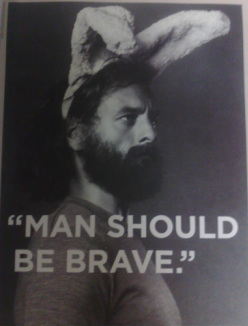 Let’s assume that you have the academic qualifications required, that you have passed the tests that they have put in front of you and that you have ticked all the boxes in the initial interview; so what is now stopping you from reaching out and taking the job that you want? The simple answer is only two things: 1. You and whether you genuinely believe you are the best candidate for the job and then perform accordingly - back yourself 2. Someone else being just that bit better that you despite all of your efforts Obviously, the only thing you can really control from those two factors is the first one; because at the end of the day if someone is better qualified, more experienced and performs better than you on the day then they deserve the job, that's life; learn from it, understand it and move on. However, you must genuinely give it your all, know that you have done the best that you can do and be content that you have not let yourself down to be able to walk away and retain your belief and confidence. Some confidence reaffirming ideas that you should consider using: Everyone else going for this job is nervous Everyone else will have some things they are good at and others which they find a challenge during the day · Tell yourself ‘I deserve to be here and I now need to give the recruiters the performance and results that they want from me to be able to give me the job; it’s in my hands’ - take control Remind yourself ‘This is what I have prepared for; I am better prepared and more aware of what is to come that anyone else here’ · Also keep in mind ‘I will be authentic, relaxed and confident but when I need to ‘fake it to make it’ I now know how to and when to do so’ Everything that they know about you is in your CV and your performance and results today; it is up to you to make sure that they see everything you have to offer during the day Interviews are just two people talking to each other In an interview both people have the same goal; for the candidate to be the right one for the job Be the right one! |
Paul GoringAGR MIPR BPS Lvl B+ Archives
November 2018
CategoriesAll Appraisals Career Career Advice Career Coaching Career Decisions Careers Advice Career Support Coaching Communication Confident Interviews CV / Marketing Flier Education Employability Employers Events Grad Careers Internships Interview Performance Interviews. Interview Advice Interview Tips Job Advice Lucid Stories Management Skills Networking One To One Meetings Personal Brand Personal Development Presentations Reflective Learning Returning To Work Staff Development Student Employability Understanding The World Of Work Your Own Career Manager |
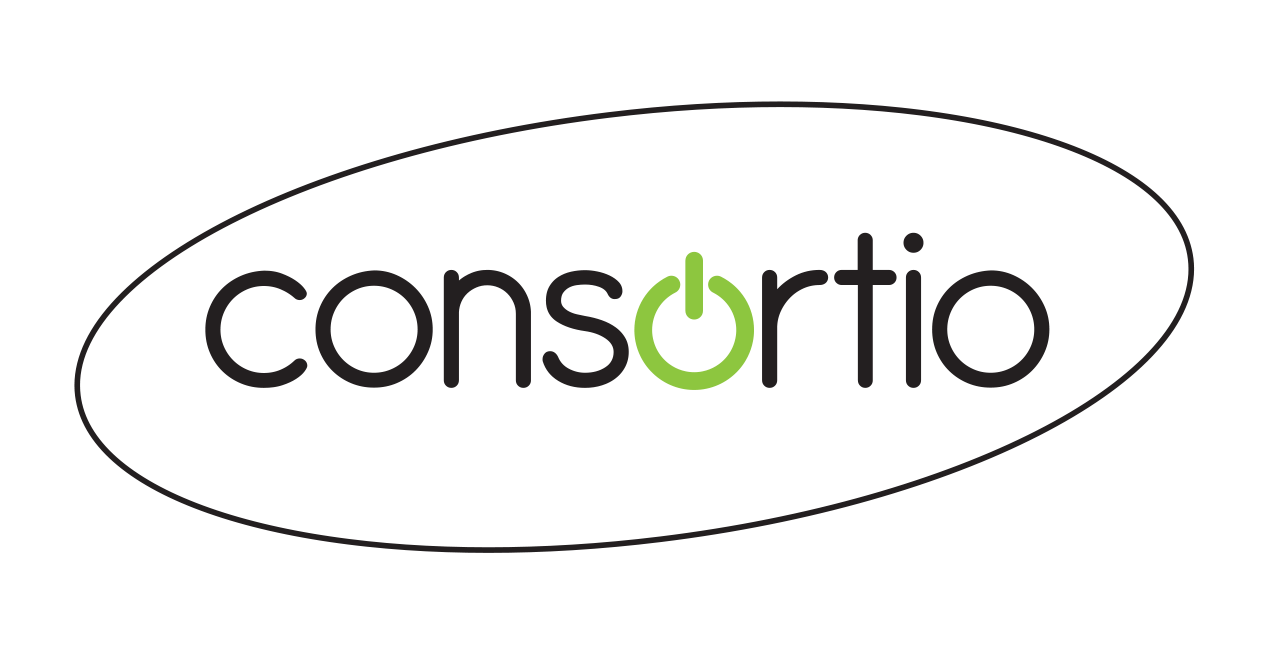

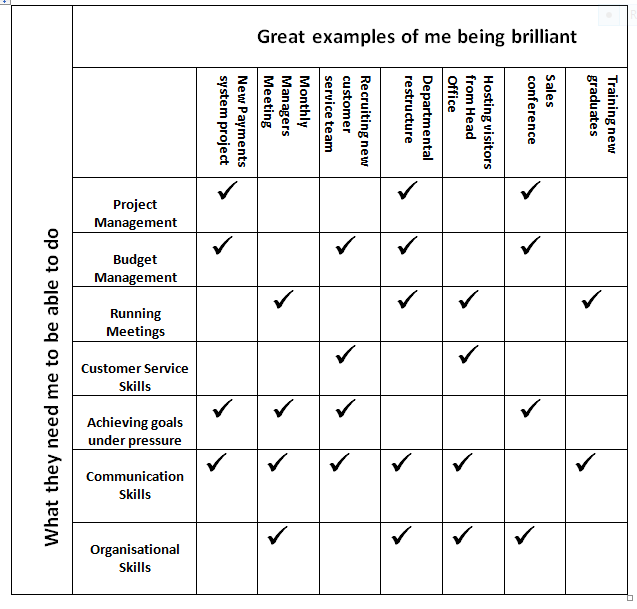
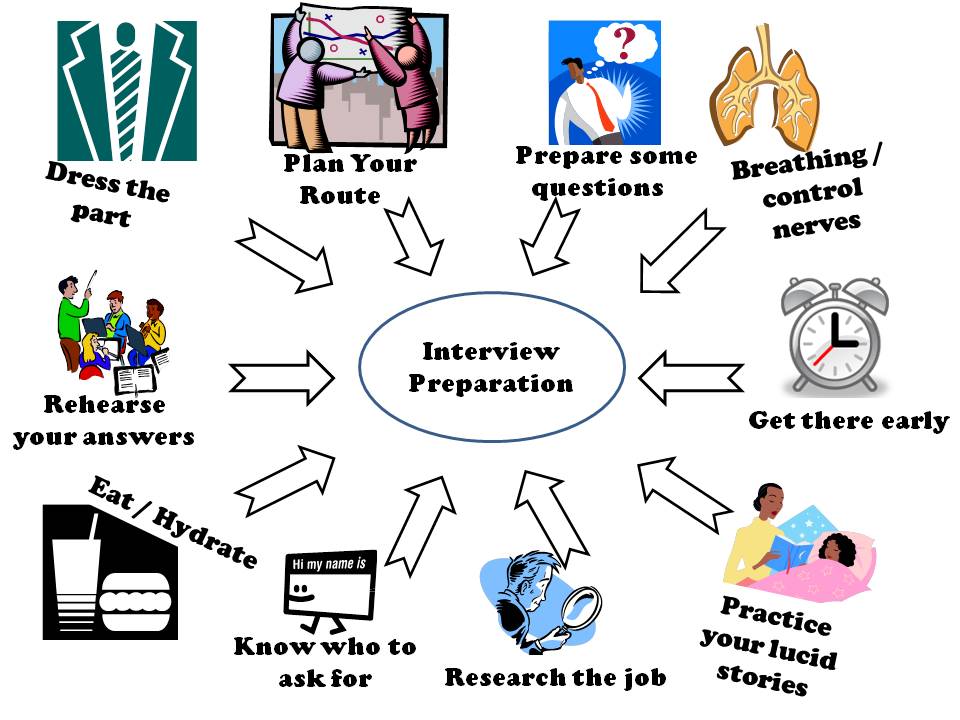


 RSS Feed
RSS Feed
